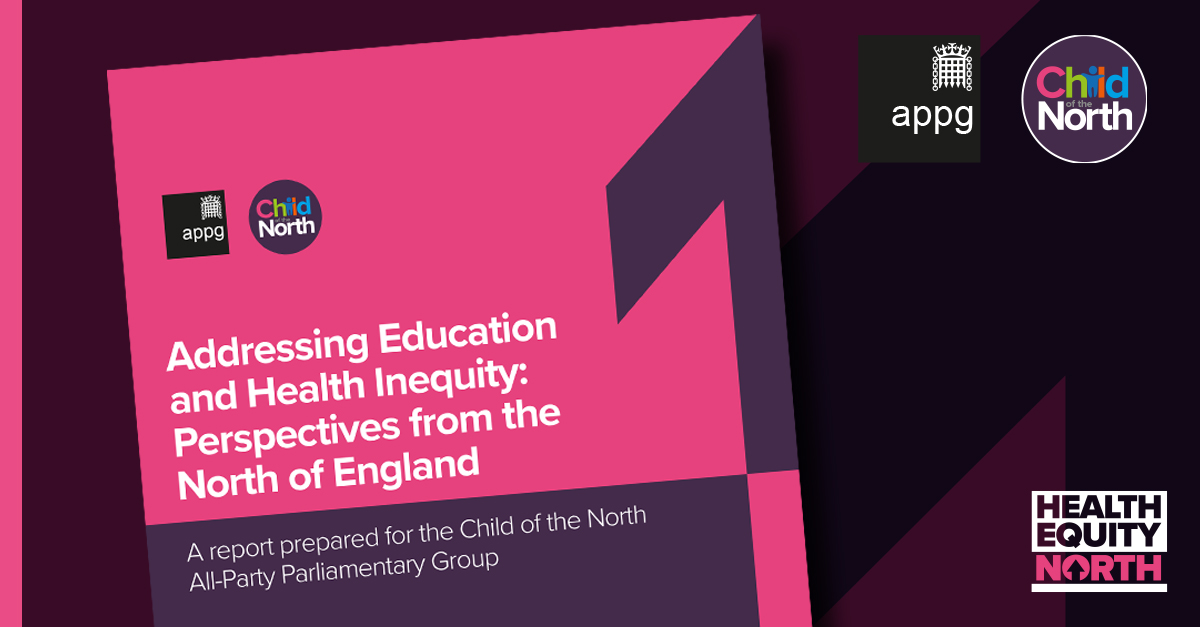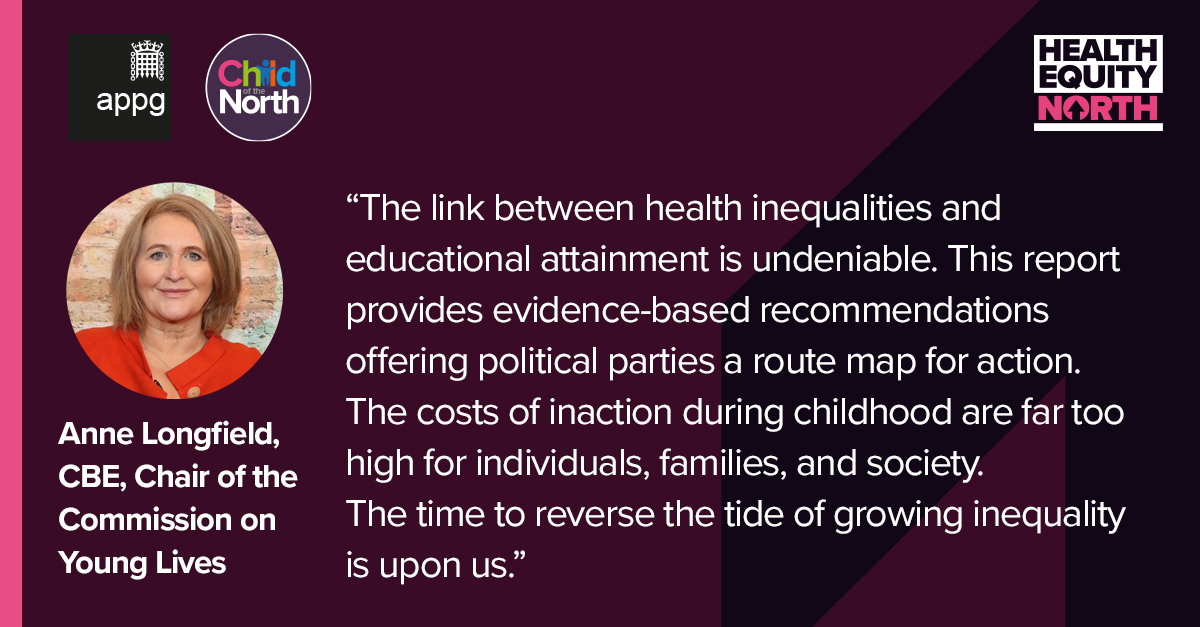News
"MPs Rally Behind Bradford Birth to 19 initiatives in 'Child of the North' Report"

50 Things to Do and the Education Alliance for Life Chances were highlighted as examples of quality evidence-based interventions in the fight against childhood inequality.
The Child of the North: Addressing Education and Health Inequity report highlights a number of stark inequalities that demonstrate that children in the North of England are disproportionally disadvantaged compared to children in the South of England. The new analysis, by academics from the Child of the North group – a partnership between Health Equity North and N8 Research Partnership - on behalf of the Child of the North All-Party Parliamentary Group (APPG), found that on average pupils in London received 9.7% more funding than those in the North.
Bradford Birth to 19 Institute of the Early Year's flagship initiative, 50 Things to Do Before You’re Five (a place-based, offer for Local Authorities and other public sector organisations helping parents to develop their home learning environment) and partner-hosted organisation Education Alliance for Life Chances (EALC) partnership (a formal partnership formed out of the legacy of the Bradford Opportunity Area programme to propel whole system, place-based approaches to improving social mobility) feature as concrete examples of proactive collaboration, action at local authority and place-based levels and effective ways of reducing inequality among children.
The Child of the North: Addressing Education and Health Inequity report also highlights that children born into the poorest fifth of families in the UK are almost 13 times more likely to experience poor health and educational outcomes by the age of 17.
This poses a risk for public services in future years, as the long-term consequences of poor education can not only impact physical and mental health, but can also place great pressure on the NHS, social care, and criminal justice system in future.
It has prompted rallying calls for immediate action to address the imbalance from northern MPs and academics, who have set out a suite of recommendations to help level the funding playing field.
The report illustrates how public services in the North of England have come together to create innovative approaches that bring health and education together to deal with the poor outcomes faced by children and young people.
It includes examples of regional evidence-based collaborative initiatives that showcase the power of working collaboratively and resource sharing to achieve transformational changes in pupils’ educational achievement and lives.

The report references "growing evidence of the impact of “add-on” interventions such as parenting programmes...the sustained increase at school entry (4-5 years), of language delay, poor physical health, and emotional trauma strongly suggests that a sustained offer to families of accessible activities for all children is needed" (page 32).
The example cited by the report is the 50 Things to Do Before You’re Five initiative, featured in Chapter 11, which is cited as helping "every child reach key milestones".
"Play is a fundamental aspect of childhood and should underpin everything within the early years”, it continues (page 32). The impact of 50 Things makes sense because when parents have an informed position and understand the immense value of play, and therefore enable playful opportunities, it helps:
- Improve health by establishing active lifestyles, leading to better mental wellbeing, lower obesity, and improved coronary and respiratory fitness.
- Establish healthy habits that can last a lifetime.
- Improve language and communication.
- Develop fine and gross motor skills.
- Enhance parental confidence.
- Impact school readiness, including better self-regulation, metacognition (thinking about one’s own thinking and learning), and resilience.
50 Things to Do is a place-based, parent-facing offer for Local Authorities and other public sector organisations, developed at Bradford Birth to 19. It helps parents to develop their home learning environment to improve children's life chances. 50 Things is based on the simple notion that fun, low or no-cost experiences with family, indoors and outdoors, are great ways to support children’s development. Since its launch in 2018, 50 Things to Do has been introduced in 22 areas across the British Isles, representing 13.3 % of the under-five population in these localities.
Another example of impactful partnership work in the north given is the Education Alliance for Life Chances, described as a "promising partnership model" working as "a legacy recommendation from Bradford’s OA, to sustain progress on social mobility". The report continued, "Wherever they are established, EALC-type partnerships are well placed to drive action on challenges requiring bold, innovative collaboration."
The report calls for more funding for EALC-style arrangements.
"EALC-style arrangements require both effective leadership and a discretionary budget to drive the change on the scale that is needed. Locally, resources are tight, and while Bradford could expect partners to be open to suggestions to match fund investment, it needs a longer-term solution that enables the partnership model to drive change at both a local authority arealevel and implement place-level delivery, e.g., “Act Locally”. (pages 21-22)
Education Alliance for Life Chances is a partnership bringing together Bradford's schools, health services, police, the Local Authority, voluntary services, universities, faith leaders and businesses to tackle childhood inequality and improve social mobility for all, hosted by Bradford Birth to 19. EALC is driving forward a research and data-informed ‘whole system’ partnership approach to improving both social mobility and children’s life chances, enabling an effective pooling and targeting of resources, efficient operational alignment, and a coordinated strategy.
This report highlights how Bradford Birth to 19 is leading the way in demonstrating innovative partnerships and approaches to tackling education and health inequalities that this newly published report highlights. But how can we encourage national policymakers to change and more areas in Northern England to follow suit?
Flip to read the full report
About Bradford Birth to 19
Bradford Birth to 19 is the training, research and development arm of leading education provider St. Edmund’s Nursery School and Children’s Centre. For over a decade, we have worked in partnership to improve outcomes and increase social mobility for children through school & setting improvement, training and qualifications, guidance, and cutting-edge educational initiatives, working with over 500 schools and settings, training over 2,500 educators, partnering with over 20 local authorities, and delivering over 10,000 training sessions.
